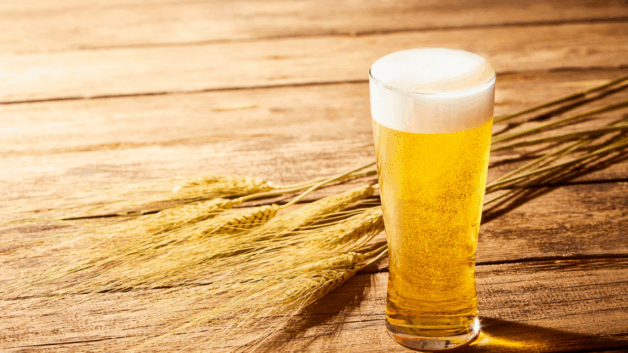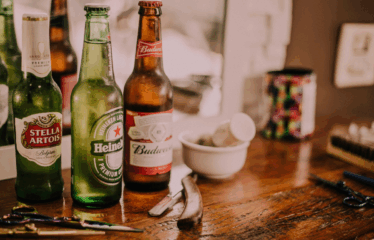

Excise duties on non-alcoholic beer in Europe
When selling alcoholic beverages across the EU, producers and distributors are well aware of the complexity of excise duty rules. However, it’s often less obvious that some non-alcoholic products—such as coffee, juice, or even chocolate—can also fall within the scope of national excise duties.
This article aims to shed light on the taxation of non-alcoholic drinks, with a specific focus on non-alcoholic beer. The rules can vary significantly between countries, and in some cases, beverages with little to no alcohol content may still be subject to excise duties or similar levies, depending on their composition and classification.
In this article, we’ll explore how different EU countries treat non-alcoholic beer under their excise frameworks, and what that means for manufacturers, importers, and distributors operating across borders. We will also review the types of alcoholic beverages that may be subject to excise duties, depending on the national legislation.
Excise Duties on Alcoholic Beverages in Europe
Excise duties on alcoholic beverages are a well-established part of the tax framework across Europe. These duties apply to a wide range of alcoholic products, including beer, wine, spirits, and certain intermediate beverages. The rates and regulations can vary significantly between EU member states, reflecting national policies and public health objectives.
Beer is typically taxed based on its alcohol content and volume, with reduced rates often applied to lower-alcohol beers.
For example, in France, beers with an alcohol content up to 2.8% ABV benefit from a reduced excise duty rate, while stronger beers are taxed at the full rate. The recent change excluding non-alcoholic beer (up to 0.5% ABV) from excise duties in France marks a notable development in this area.
Wine excise duties exist in some countries, but many EU member states do not currently impose excise duties on wine, relying instead on VAT and other indirect taxes.
Spirits and distilled beverages are generally subject to higher excise duty rates due to their higher alcohol content. These duties are harmonized at a minimum level across the EU but can be set higher by individual countries.
Certain countries also impose excise duties on intermediate products, such as cider, perry, and certain fortified wines, which may be taxed differently depending on their alcohol strength and production method.
Overall, excise duties on alcoholic beverages play a crucial role in public health policy, taxation, and trade regulation within Europe. Businesses dealing with alcoholic products should be aware of both EU-wide regulations and national variations to ensure compliance.
Excise Duties on Non-Alcoholic Beverages: A European Overview
While the European Union harmonizes excise duties on certain products, Member States retain the autonomy to set national rates for non-alcoholic beverages. This autonomy results in a diverse landscape of taxation across Europe, impacting manufacturers, importers, and even online retailers.
France
In France, the taxation of non-alcoholic beverages is multifaceted, targeting various product categories to promote public health:
- Non-alcoholic beer : a legislative change came into effect on July 1, 2022, excluding beers containing up to 0.5% ABV (alcohol by volume) from the definition of taxable beer under excise duty laws. This means that non-alcoholic beers with an alcohol content not exceeding 0.5% ABV are no longer subject to excise duties.
Prior to this change, non-alcoholic beers were taxed similarly to alcoholic beers. The exemption aims to support the growing market for low-alcohol and alcohol-free beverages while aligning tax treatment more closely with actual alcohol content.
It is important to note that beers with an alcohol content exceeding 0.5% ABV remain fully subject to excise duties under the standard rates, including reduced rates for beers with up to 2.8% ABV (low-alcohol beers) and full rates for higher alcohol content.
Please note : In most other European countries (Spain, Italy, Germany, Belgium, etc.) non-alcoholic beers are subject to excise duty.
- Sugary Drinks: Taxed based on sugar content per hectoliter, with rates increasing alongside sugar concentration. For instance, beverages containing less than 1 kg of added sugar per hectoliter are taxed at €3.34, while those with 15 kg are taxed at €26.09.
| Quantité de sucre (en kg de sucre ajouté par hl de boisson) | Tarif applicable (en € par hl de boisson) |
| Inférieur ou égal à 1 | 3,34 € |
| 2 | 3,9 € |
| 3 | 4,44 € |
| 4 | 4,99 € |
| 5 | 6,11 € |
| 6 | 7,22 € |
| 7 | 8,33 € |
| 8 | 10,55 € |
| 9 | 12,77 € |
| 10 | 14,98 € |
| 11 | 17,21 € |
| 12 | 19,43 € |
| 13 | 21,65 € |
| 14 | 23,87 € |
| 15 | 26,09 € |
| Au-delà de 15 ans | + 2,21 € / kg de sucre ajouté |
- Artificially Sweetened Beverages: Subject to a flat tax rate of €3.34 per hectoliter.
- Combined Sugar and Sweetener Content: Products containing both added sugars and artificial sweeteners are liable for both taxes.
- Bottled Waters: A tax of €0.54 per hectoliter applies to various types of water, including mineral and spring waters.
These taxes are integrated into the VAT base, meaning VAT is calculated on the total amount, including these contributions. Manufacturers, importers, and distributors are responsible for declaring and paying these taxes, typically aligning with their VAT reporting schedules.
In addition, non-alcoholic beverages in France are subject to different VAT rates depending on their packaging:
- 5.5% when sold in containers designed for storage, such as bottles, cans, or cartons.
- 10% when intended for immediate consumption and served in non-reusable containers, such as plastic or cardboard cups.
These rules apply to all types of non-alcoholic drinks (water, juice, soda, etc.) and must be taken into account when calculating the final retail price including tax.
Belgium
Belgium imposes excise duties on specific non-alcoholic beverages:
- Sugary Waters: An excise rate of €6.8133 per hectoliter applies to waters with added sugars.
- Packaging Tax: An additional tax is levied on various beverage containers, including those for mineral waters and juices.
Denmark
Denmark’s taxation extends beyond beverages, according to the law relating to consumption tax LBK n°1445 of 06/21/2021:
- Chocolate and Cocoa Products: Taxed at DKK 25.97 per kilogram.
- Raw Coffee: Subject to a tax of DKK 6.39 per kilogram.
Germany
Germany applies taxes to coffee products:
- Roasted Coffee: Taxed at €2.19 per kilogram.
- Instant Coffee: Taxed at €4.78 per kilogram
- Belgium applies excise duty on non-alcoholic beer. This tax is linked to the legal definition of beer, which may include low-alcohol beers.
The Netherlands
In the Netherlands:
- Non-Alcoholic Beverages: Subject to a consumption tax of €26.13 per hectoliter as of January 2024. Even low-alcohol beer is subject to excise duty, with no specific exemption for alcohol-free beers up to 0.5%.
Exemptions: Mineral water is excluded from this tax.
Finland
Finland’s excise duty encompasses a wide range of products:
- Non-Alcoholic Beverages: Including waters, juices, concentrates, and powders intended for beverage preparation.
- Nutritional Products: Such as sports drinks, energy gels, and plant-based beverages like soy and oat drinks.
- Tax Rate: For waters, including mineral and aerated waters without added sugars or flavoring, the tax is €0.13 per liter.
The varied excise duty landscape across Europe necessitates that businesses:
- Stay Informed: Regularly monitor tax regulations in each country of operation.
- Ensure Compliance: Accurately calculate and remit taxes to avoid penalties.
- Seek Expertise: Consult with tax professionals to navigate complex regulations, especially when dealing with cross-border sales and e-commerce.
Understanding and adhering to these diverse taxation systems is crucial for businesses involved in the production, importation, or distribution of non-alcoholic beverages within the European market.
Other topics that may be of interest to you


